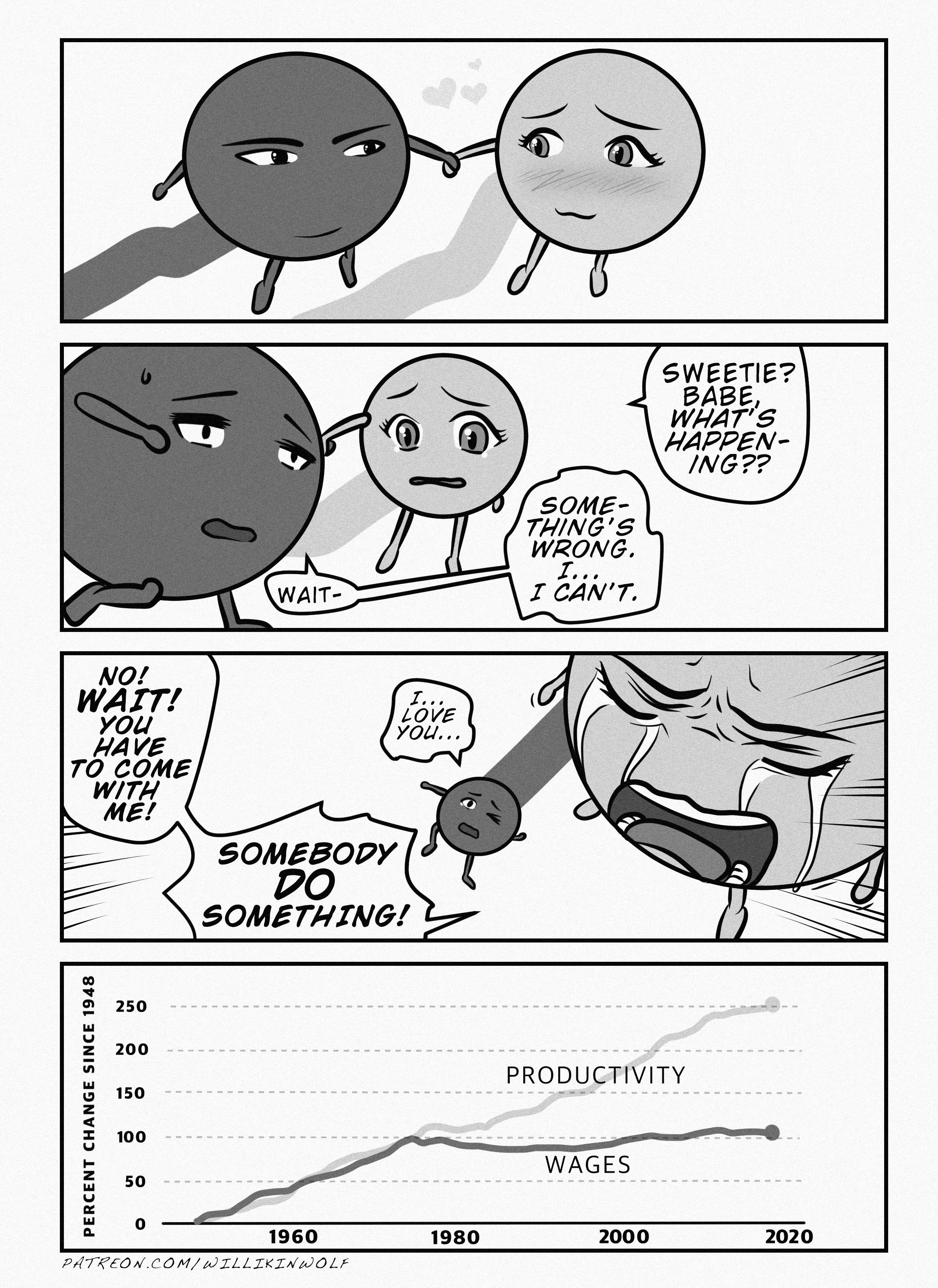In what year was Reagan elected? I’ll give you a tip, it was the same year the country started to get fucked.
You beat me to it. I was just going to reply, “Ronald Regan”.
Forget baby Hitler, if I had a time machine I’d kill baby Reagan.

this is why everyone who’s getting screwed on pay should be quiet quitting with no remorse
“Production can be cut”
Ownership class:
Obligatory EPI Institute webpage on this (recently updated for 2024!)
Production can be cut, without lowering pay for most workers
Companies have a fiduciary responsibility to their shareholders, so unless you’re running a co-op or we transition to a socialist economic structure then this will likely never happen sadly. That huge gap between production and wages is what fuels our current economic paradigm. The system just needs to be rewritten.
So, generated value vs what is compensated. It looks like to me like the difference is the basis for the absurd wealth inequality. So, if we increased wages, let’s say roughly 2x for the mean, 5x for the bottom 10p, and 1.5x for 90p, and 0.5x up to 95p. Has anyone done a calculation similar to this, to determine just how few people, that is, how high the percentile, and how low that factor, for that to actually add up? Maybe it even allows for everyone to live decent lives, just mildly inconveniencing a few thousand?
One can start wondering if a few hundred heads rolling isn’t a valid moral least-evil proposition. Life considered equal. More people die every single day due to arguably greed. In most of the 99.9p+ cases, I assume is due to inherited wealth, and existing market capture. So it’s not like some exceptional value is lost to humanity either.
Note this is before the pandemic, and now there are way more 200+ billion dlls billionairs
Switzerland is one of the few countries where this graph hasn’t strayed. I wonder if it is because how strong apprenticeship and manual jobs are valued in our culture?
Germany has a pretty similar apprenticeship system to Switzerland, but a massive gap.
Maybe the salary increases of the boses of the companies registered in our tax haven cantons are artificially closing the gap.
Does anyone know what happened in the early 1960’s that led to that smaller, but still noticeable diversion?
Unfortunately I don’t know.
To correlate the effect with social processes, one would have to plot the same graph for multiple countries and see what processes occur in each history at the time of the lines forking apart (assuming they do so).
Some guesses: automation, perhaps globalization of supply chains, something related to the effectiveness of employees at bargaining with employers?
MBAs took over businesses from internal promotions.






